Today I’m continuing on with another old travel post. After leaving Huntsville we needed to head home, but wanted to make the most of our day. We drove over to Cullman, AL, which is about an hour south of Huntsville. We have been to Cullman several times, but have never stopped to see the Ave Maria Grotto. If you’re ever in Cullman, this is a must see! 4 acres in an old quarry on the grounds of St. Bernard Abbey covered in 125 miniature reproductions of some of the most famous religious structures in the world like the St. Peter’s Basilica, the Monte Cassino Abbey and the Sanctuary of Our Lady of Lourdes. You’ll also see recreations of the Alamo Mission in San Antonio, the Leaning Tower of Pisa, and the Hansel and Gretel’s Temple of the Fairies.
These miniatures were created by Joseph Zoettl who was born in Bavaria in 1878. He came to Saint Bernard Abbey in Cullman to study for the priesthood after being recruited in his home country by a visiting American priest. However, he ended up becoming a Benedictine monk and lived at Saint Bernard Abbey for almost 70 years. Known as Brother Joe, he spent his free time building these models by using pictures and textual descriptions.

This first one is the only one Brother Joe had actually seen in person! This is where he was baptized in The Church of St. Martin in Landshut in 1878. The church was the tallest brick tower in the world at 432 feet.
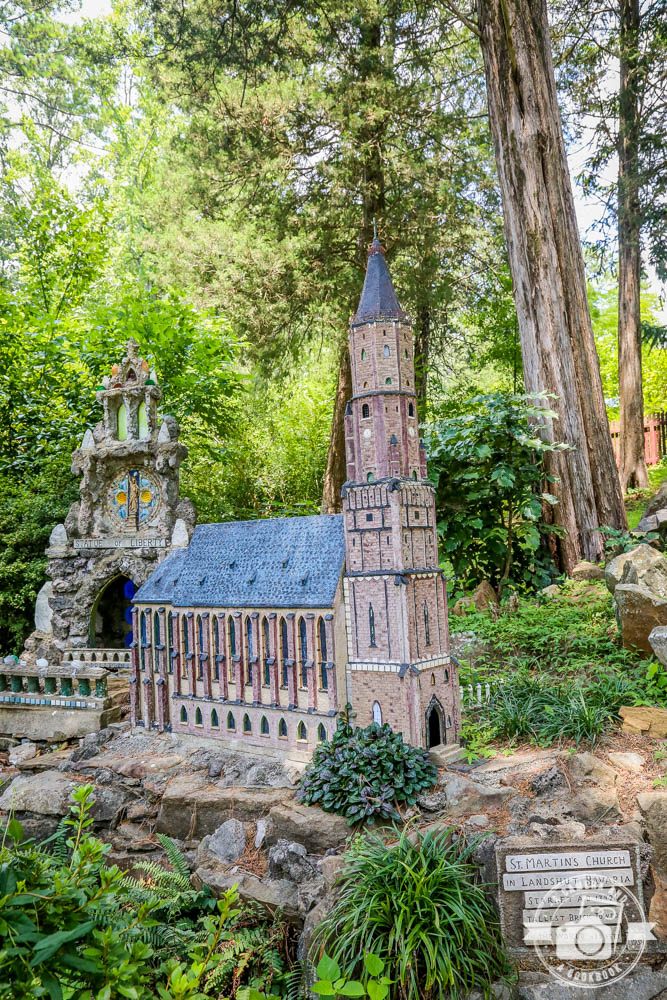
Hansel and Gretel visit the Castle of the Fairies

Below is the first Catholic Church in the US dedicated to the Bless Virgin Mary under the title of Immaculate Conception. It was dedicated December 1849 five years before dogma of the Immaculate Conception was defined by Pop Pius IX. On May 14, 1964 the cathedral was elevated to the rank of minor Basilica.
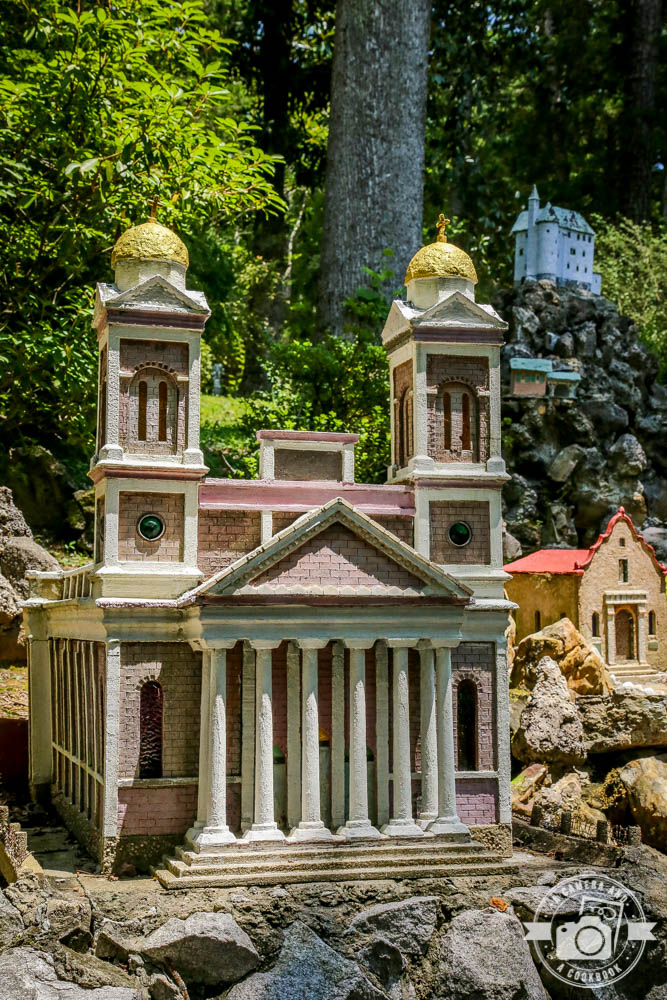
Here’s a depiction of St. Anselmo in Rome

This section (Roman Group) is probably the most awe-inspiring of all the miniatures in the Ave Maria Grotto. The largest one is a model of the largest church in the world, St. Peter’s in Rome. To the left is the St. Anselmo, a Benedictine Monastery in Rome. Next to that is the Pantheon, formerly a famous pagan edifice in Rome but now a Christian church. Above St. Peter’s is the Abbey of Monte Cassino, which was founded in the fifth century as the very first Benedictine Monastery. During World War II, it was heavily damaged by allied bombing. Next to St. Peter’s is a model of the Colosseum, where early Christians were martyred.St. Peter’s Church in Rome

The infamous Colosseum in Rome
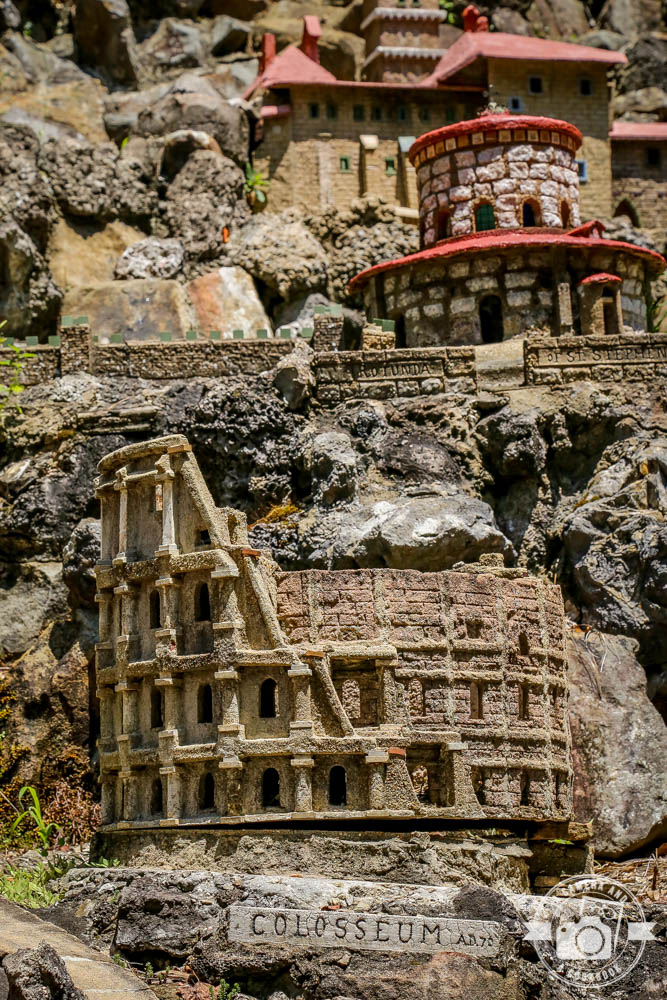
A different angle of the Roman Group
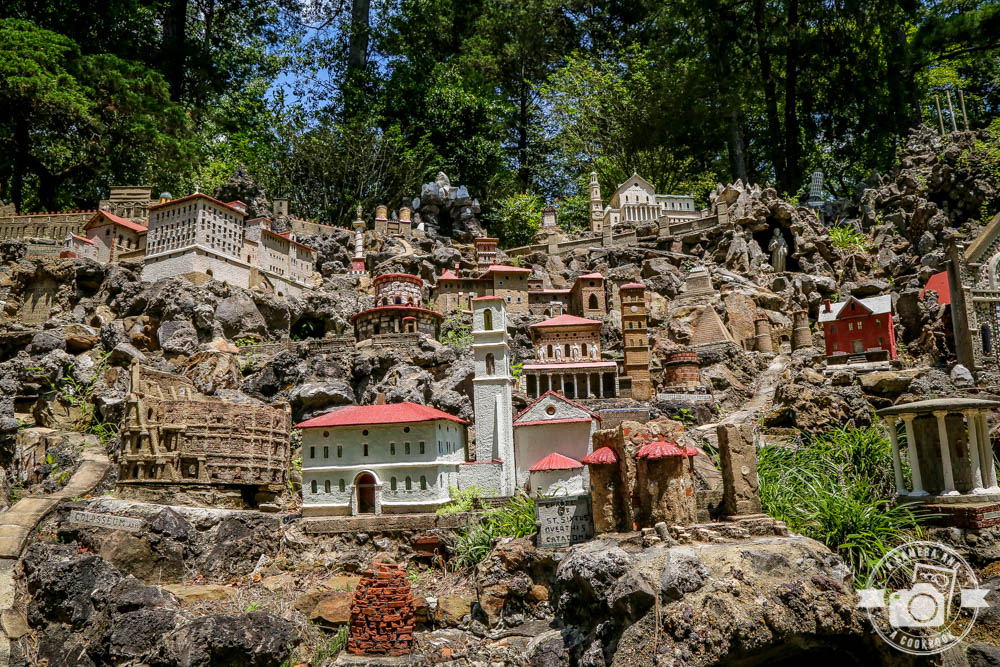
Here is the structure that started this whole collection. Ave Maria is a well-known Catholic prayer. The word grotto means cave in Italian. Many shrines in other countries are found in recesses, if not in actual caverns. Interestingly enough, the Ave Maria Grotto is 27 feet high, 27 feet wide, and 27 feet deep. It is constructed from the same limestone used to build the Saint Bernard quarry as well as reinforced concrete made possible with the help of a concrete pumping service. Some of the faux stalactites are fashioned from marble quarried at the Gantt quarry in Sylacauga, Talladega County. Tiles, seashells, colored stone and glass, seashells, and tiles add color and texture to this beautiful creation.
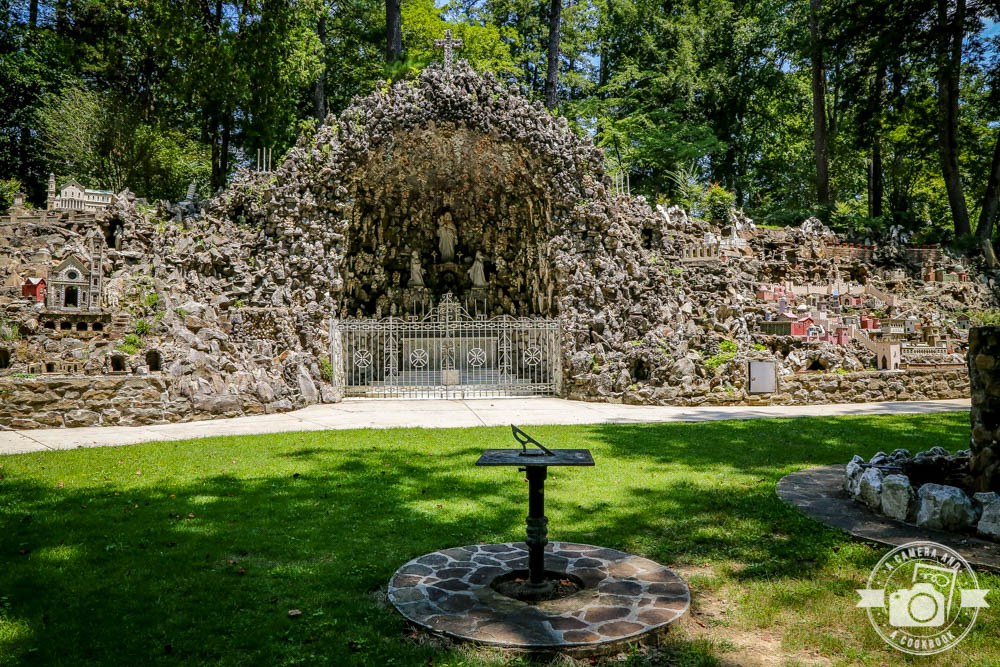
This is the Shrine of St. Joseph. St. Joseph is called the “Protector of the Universal Church.” He is the foster father of Christ. On top of this small grotto a cross is embellished with a star of David to symbolize the merging of the Old and New Testaments.
St. Joseph, venerated as a model for fathers is also the patron of workers. This statue was donated by a benefactor from Ireland. A plaque is superimposed on the rock like effigy of Pop Pius XI, who proclaimed St. Joseph “Protector of the Church.”
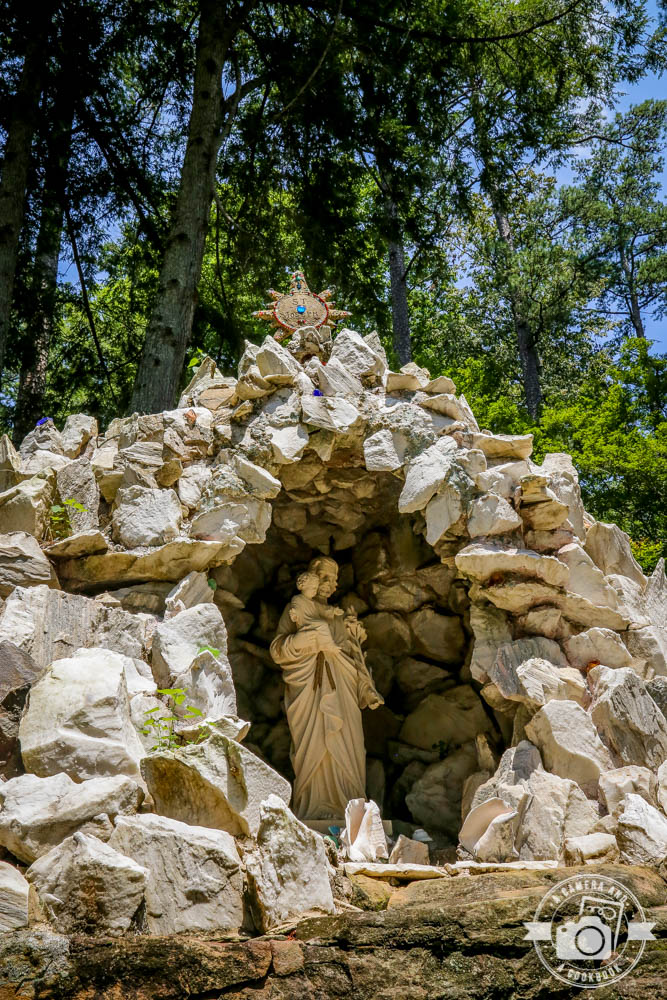
Below is the early work of Brother Joseph and was first located on the Brother’s recreation grounds. It was known to the public as “Little Jerusalem.” After the dedication of the Grotto in 1934 it was moved to its present location. If you compare this work with some of Brother’s later work you will notice a difference in craftsmanship.
The Pool of Bethsaida is where Christ cured the crippled man, who had remained at the pool for many years hoping to be made well when the Angel stirred the water.
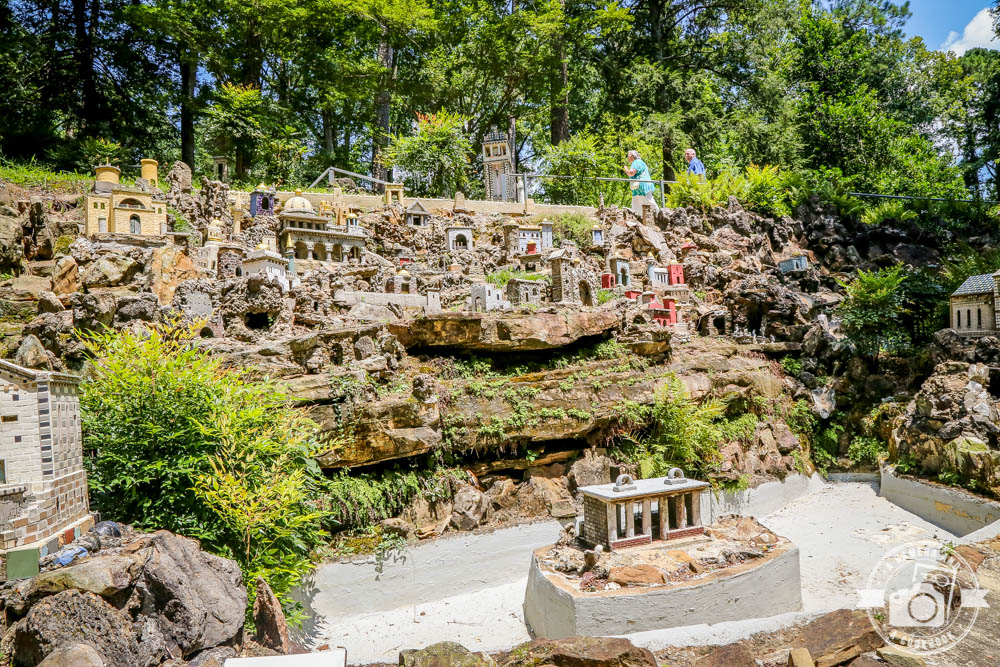
This is a memorial for the St. Bernard Boys killed in World War II.

Before leaving the complex we stopped off to see the St. Bernard Abbey Cemetery and Chapel. This cemetery is where many Benedictine Monks are buried.
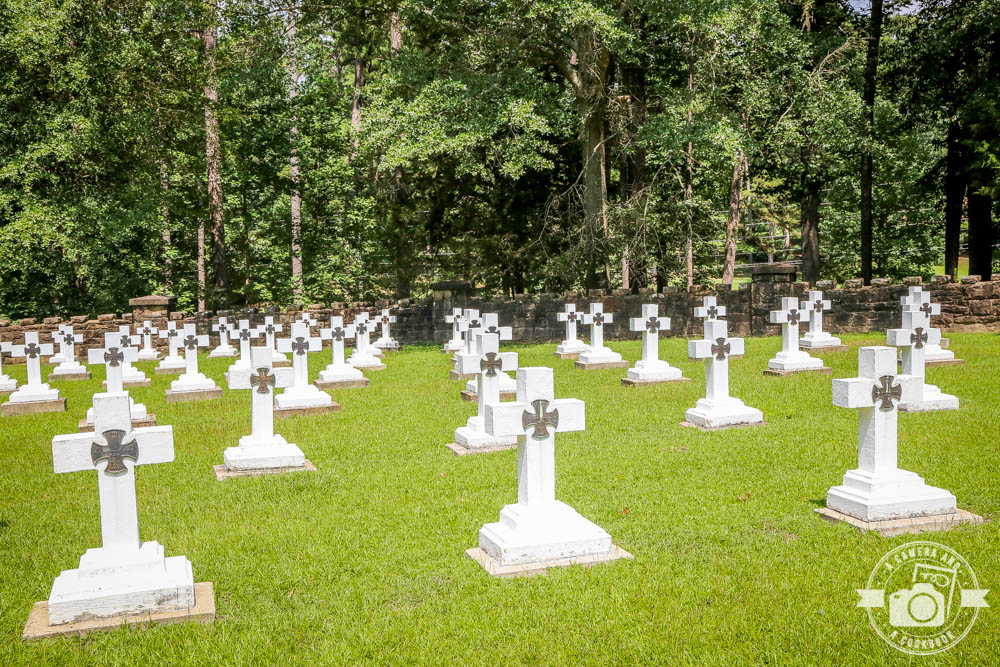
See all my pics from Ave Maria Grotto

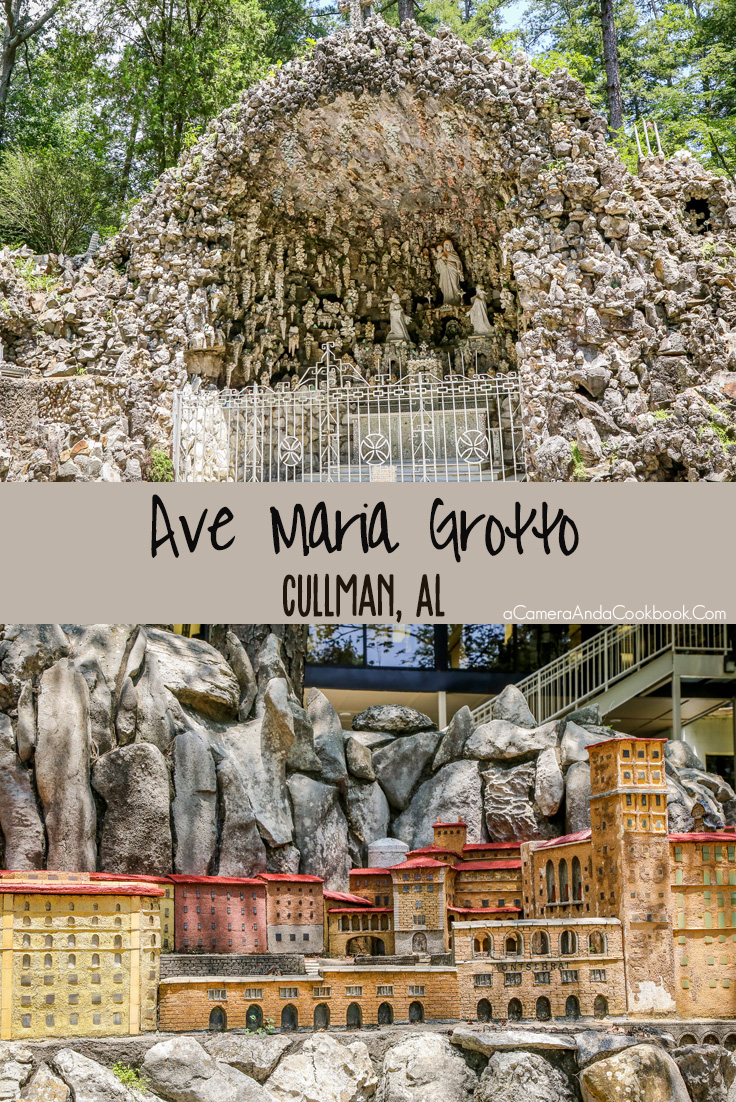
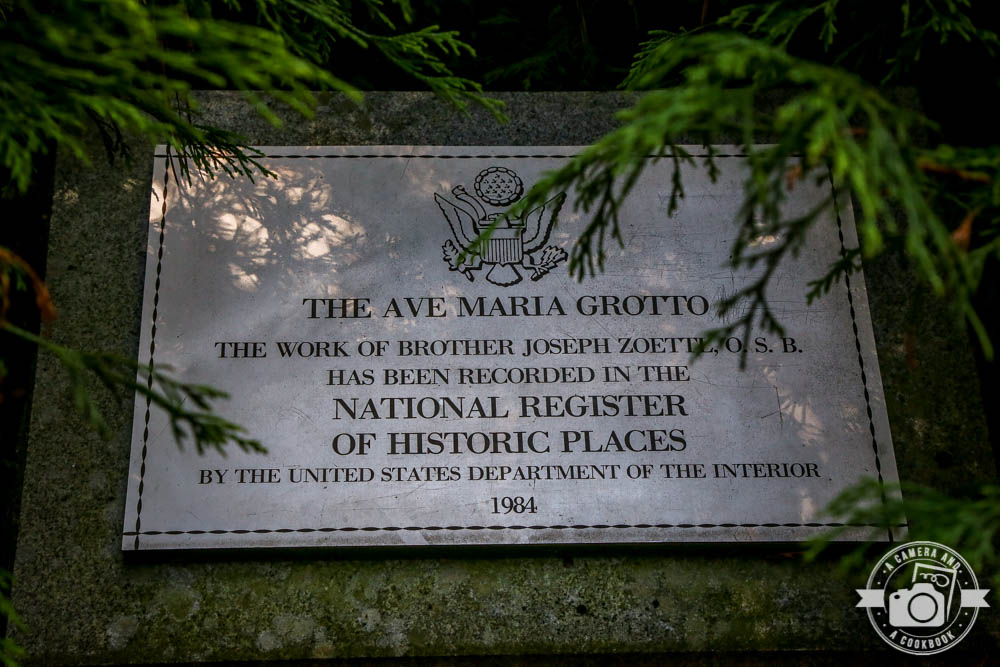
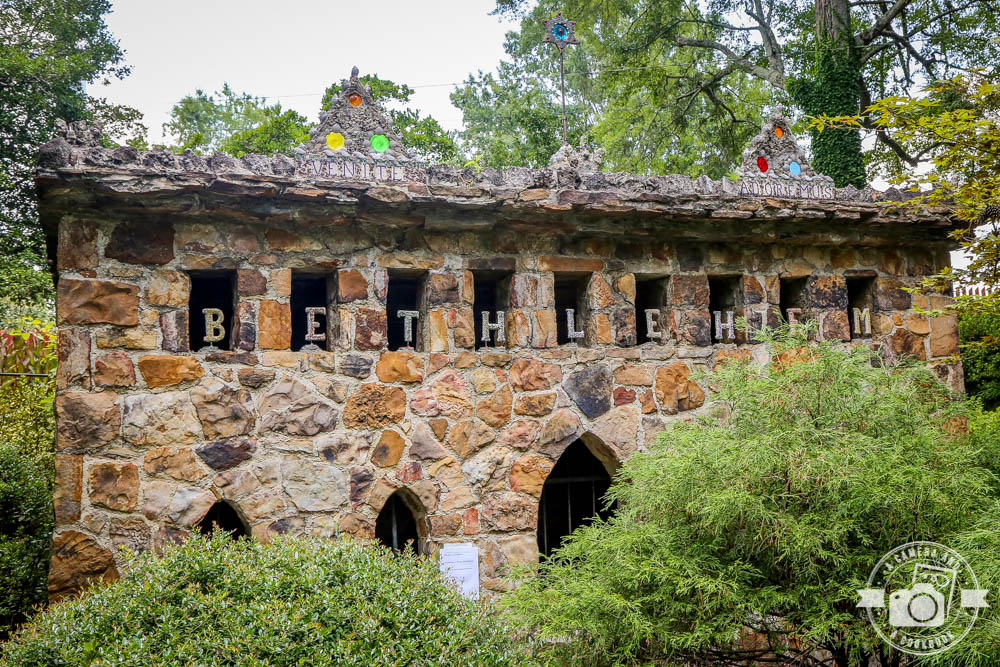
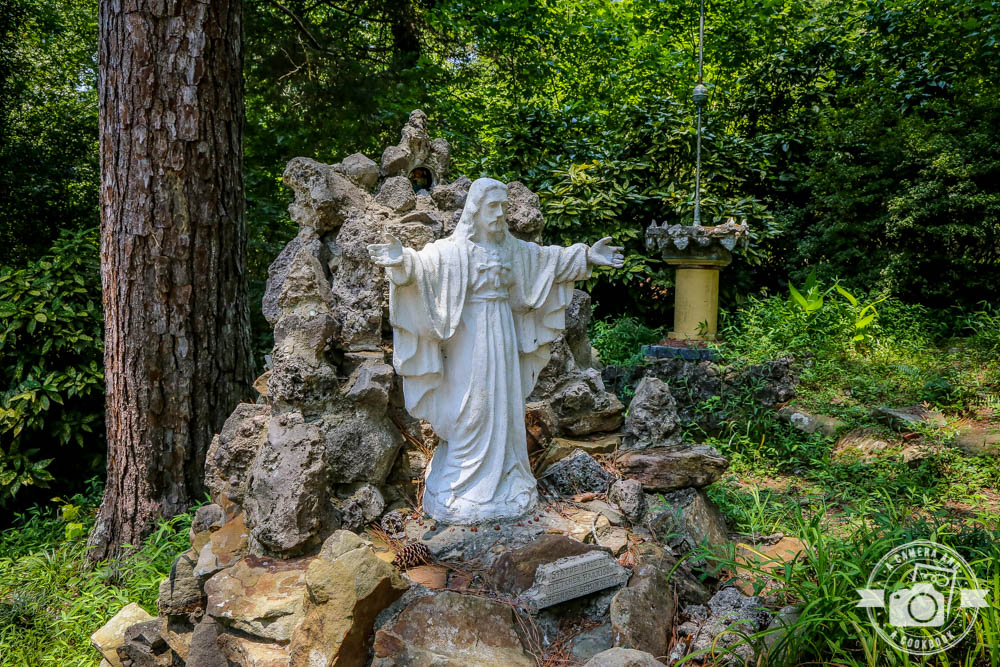
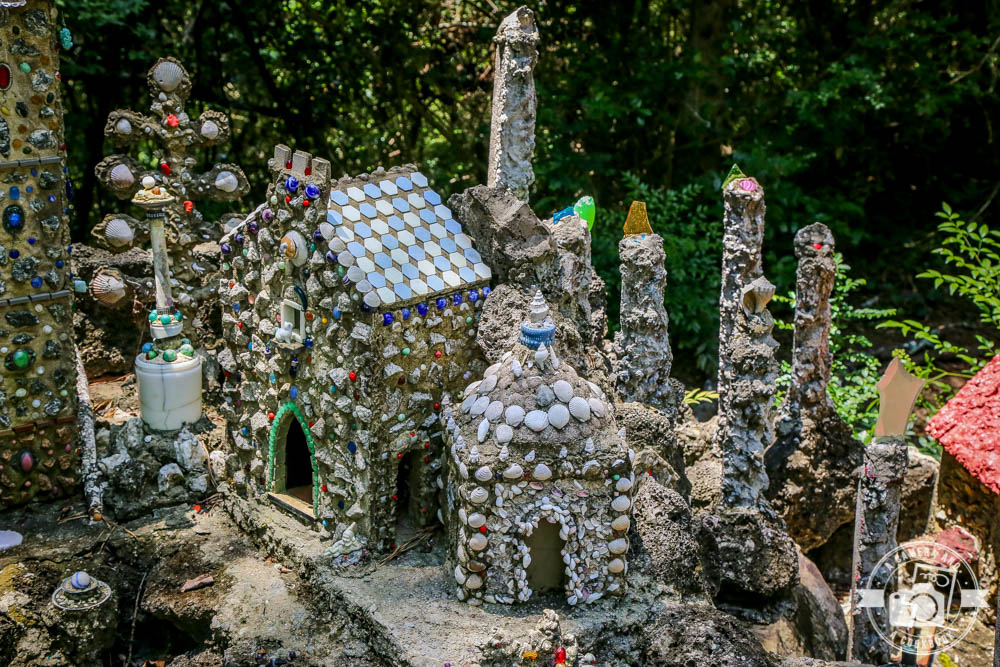

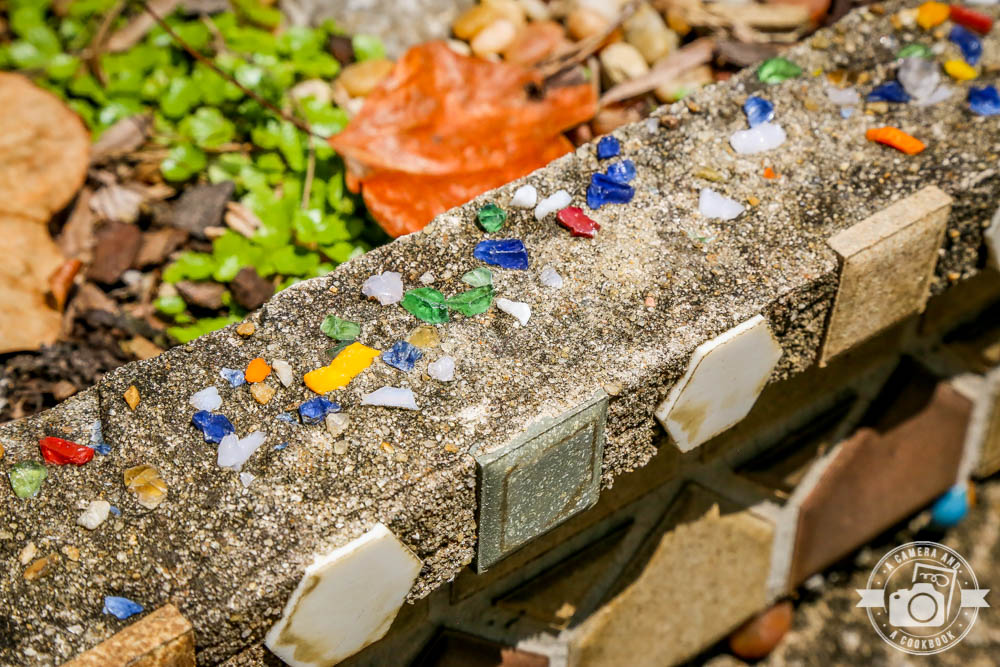
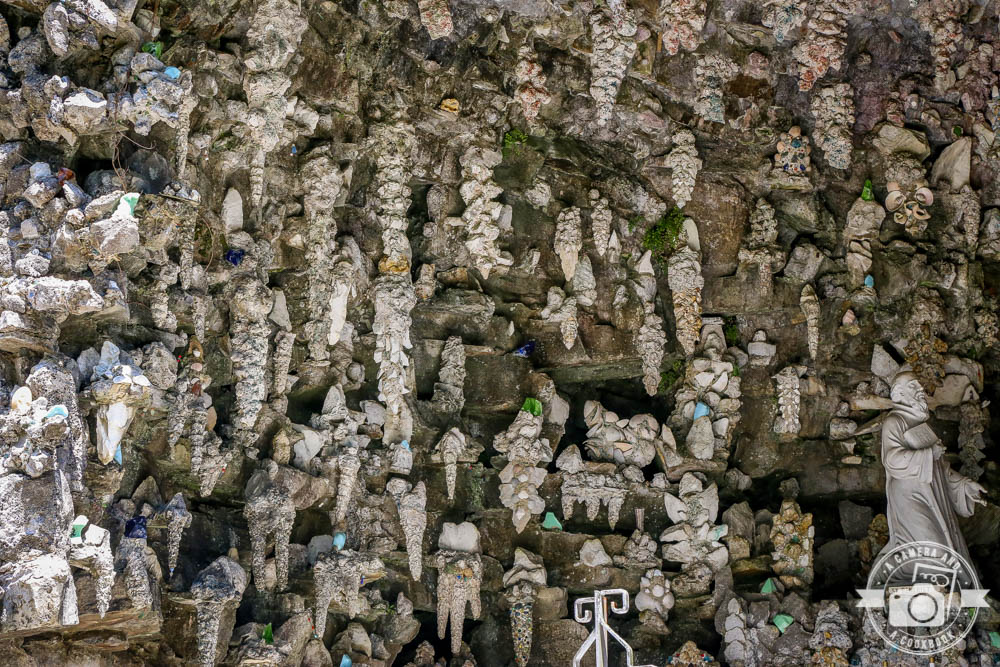
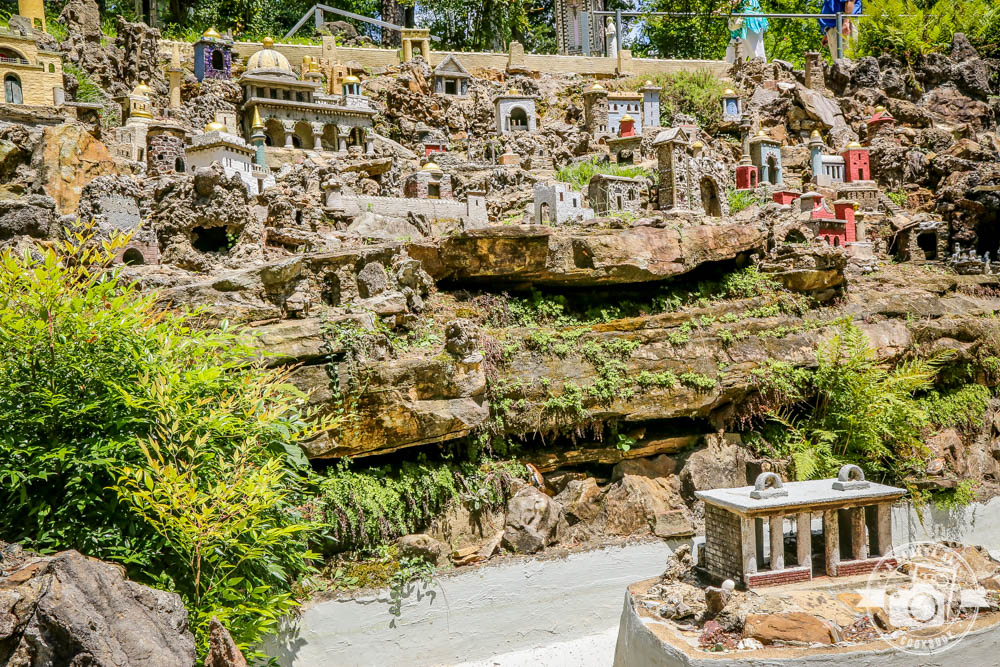
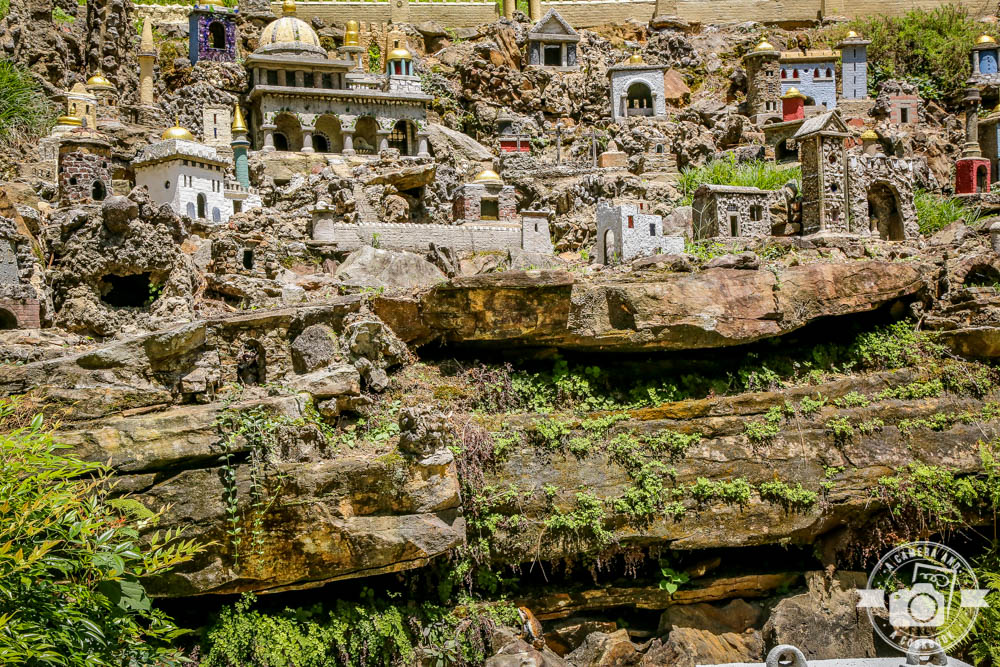
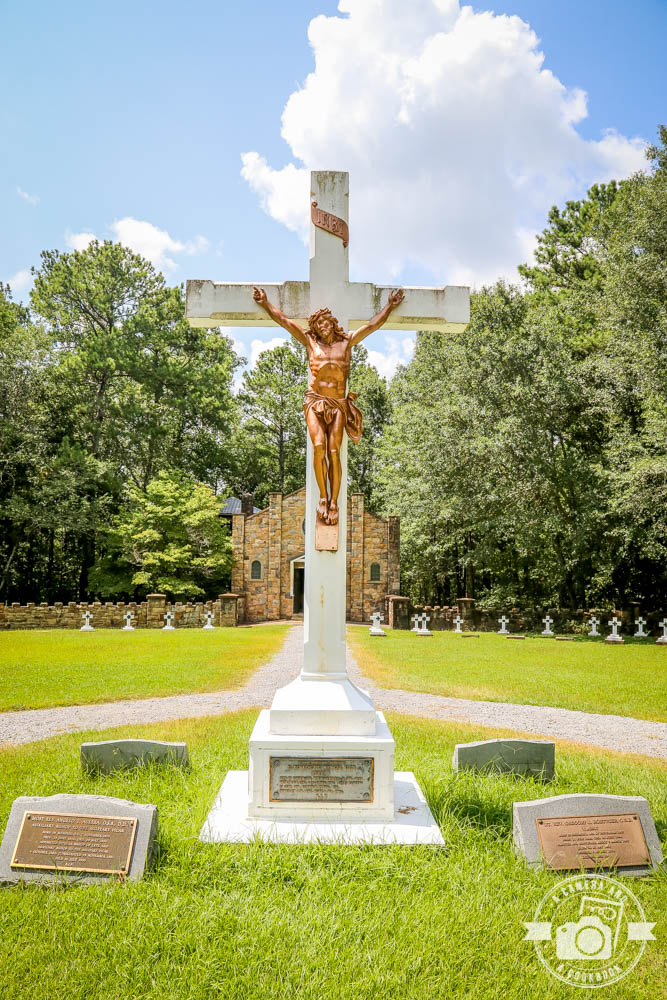
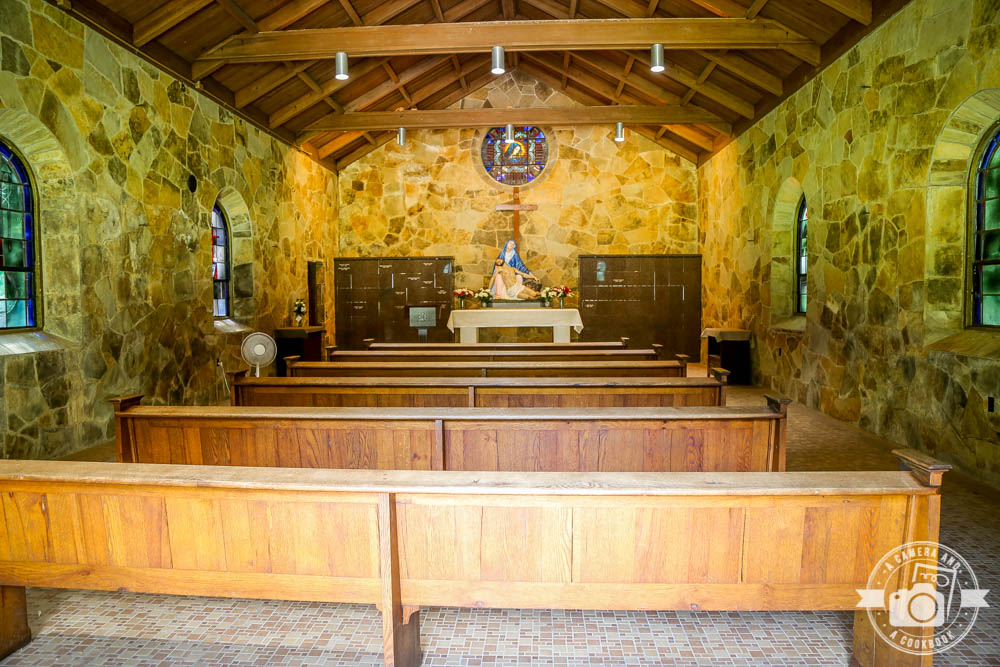


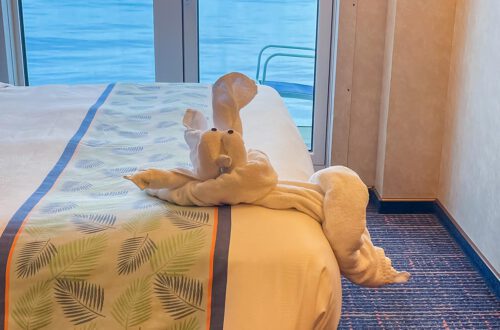
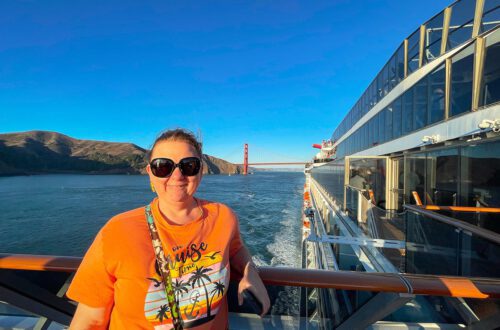
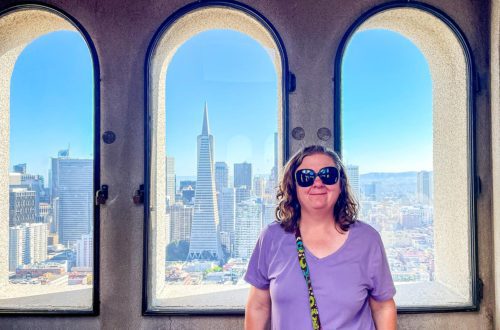
That looks like such a neat place!!
It really is quite unique and to think just one man created all these structures!